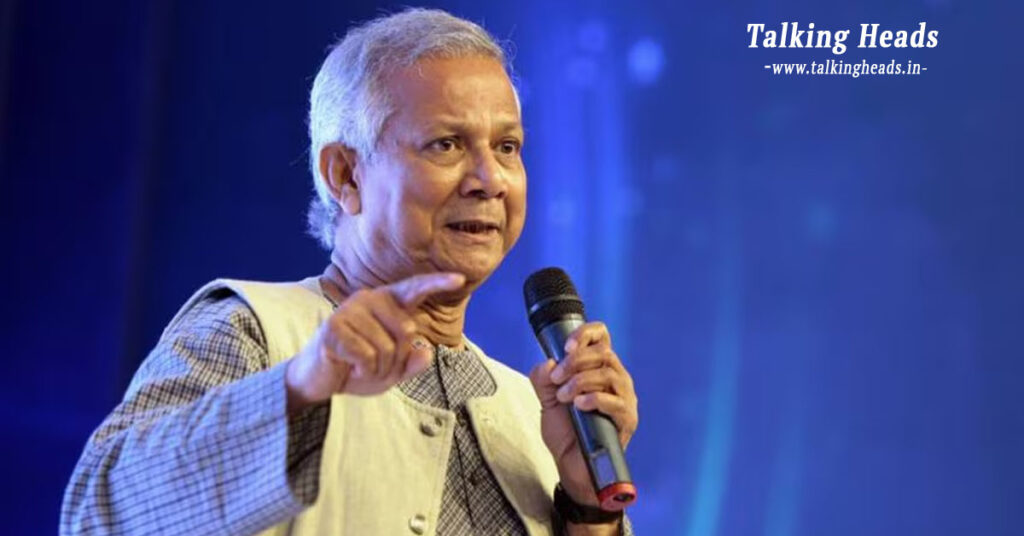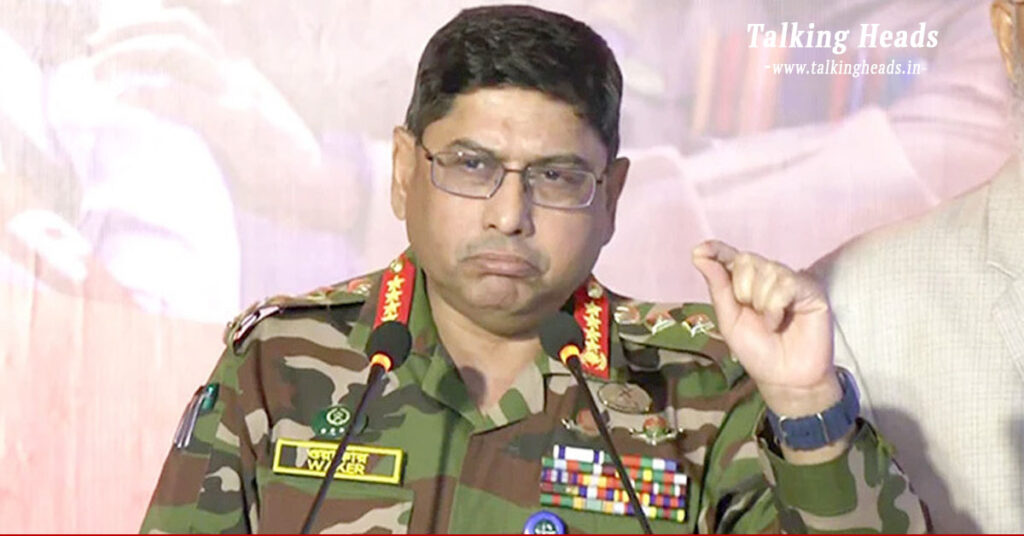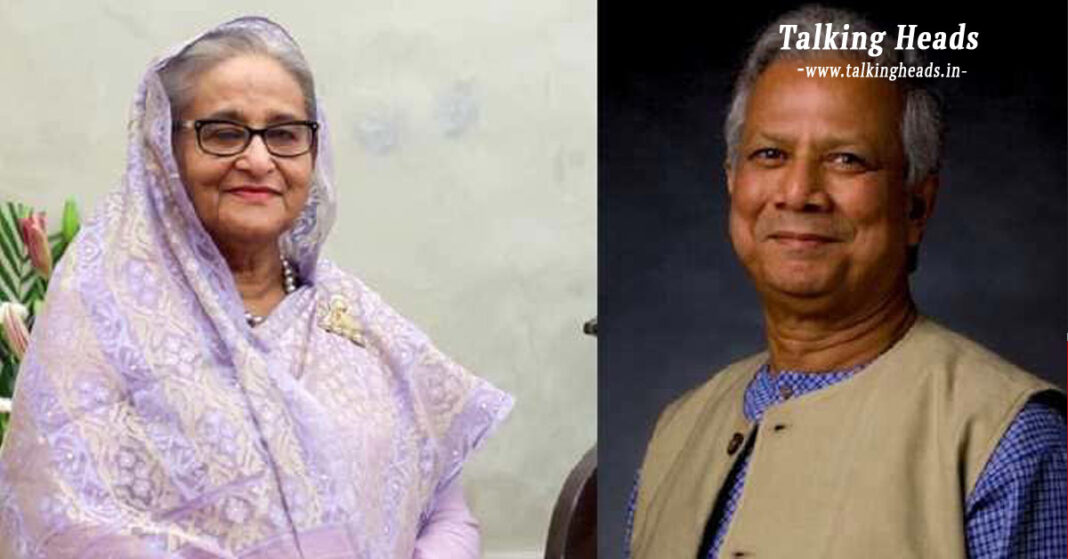Political Turmoil Grips Bangladesh Again Amid Resignation Rumours
Table of Contents
Crisis in Bangladesh: Less than ten months after Sheikh Hasina’s dramatic ousting, Bangladesh is once again witnessing intense political unrest. Over the past week, tensions have escalated rapidly, and multiple reports suggest that interim government head Mohammad Yunus is seriously considering stepping down. Statements from the army chief, General Waqar-uz-Zaman, have further fuelled the crisis, hinting at growing friction between the military and the transitional civilian leadership.
Crisis in Bangladesh: How Did Bangladesh Reach the Brink of Another Political Crisis?
The roots of the current unrest can be traced back to July 2024, when large-scale protests erupted against the Awami League-led government. The movement soon turned violent, ultimately forcing Prime Minister Sheikh Hasina to resign and leave the country. India reportedly provided her political asylum.

In the vacuum of power that followed, Nobel laureate Mohammad Yunus was appointed as the head of an interim government. He was named the chief advisor, and the arrangement gained initial support from major political players, including the Bangladesh Nationalist Party (BNP), Jamaat-e-Islami, various student leaders, and the military.
However, Yunus’s proximity to the National Citizen Party (NCP)—a group formed by student leaders who spearheaded the anti-Hasina protests—quickly became a source of contention. BNP frequently accused the interim government of favouring the NCP and sidelining other stakeholders.
Tensions peaked when Yunus made several key decisions, such as proposing a humanitarian corridor to Myanmar’s Rakhine state, without consulting other political parties. This sparked backlash not only from the BNP but also from various civil society groups. As political demonstrations gained momentum, Yunus reportedly expressed disappointment with the unrest and hinted at a possible resignation during a high-level meeting with top military officials on May 20.
Crisis in Bangladesh: Rift Between Army Chief and Interim Government Deepens
The breaking point came a day later. On May 21, General Waqar addressed military officers at Dhaka Cantonment, where he emphasized that only an elected government could bring long-term political stability to Bangladesh. He insisted that general elections must be held by December 2025—directly contradicting Yunus’s proposal to delay elections until mid-2026.

The army chief also strongly opposed the interim government’s foreign policy moves, including the humanitarian corridor to Myanmar and the decision to allow foreign management of the Chittagong Port. Additionally, he criticized the approval of Elon Musk’s Starlink satellite internet service, labeling these moves as compromises to national sovereignty.
“Bangladesh’s sovereignty is not up for negotiation,” General Waqar stated, adding that such decisions must come from a democratically elected government. His remarks have been interpreted as a clear indication of growing dissatisfaction with the interim administration.
Is Another Military Takeover on the Horizon?
The rising friction between the military and the interim leadership has sparked fears of a military-backed government. NCP leader and former government advisor Nahid Islam has openly warned of a potential coup, citing Bangladesh’s history of army interventions in politics. He argued that the current climate mirrors the events of the infamous 1/11 military-backed caretaker government era.
Recent reports from Dhaka Tribune suggest that military activity has intensified across the country. Troops in armoured vehicles have been deployed in multiple regions under the pretext of maintaining law and order. Since August 2024, the army has reportedly detained nearly 10,000 individuals, including more than 2,000 last month alone.
Despite these developments, there’s another perspective. General Waqar is seen by many as a pro-democracy figure with close ties to India. His critics argue that while he is exerting pressure on the interim government, his ultimate goal is to restore democratic governance through early elections.
Interestingly, Waqar himself faced internal resistance earlier this year. Lieutenant General Faizur Rahman allegedly tried to rally senior commanders against him in a failed attempt to engineer a military power shift. The plot, which reportedly had support from Pakistan’s intelligence agency ISI, was swiftly neutralized, with Rahman placed under surveillance.
Could Sheikh Hasina Make a Political Comeback?
Following her resignation, Sheikh Hasina’s political future has remained uncertain. Her party, the Awami League, however, maintains that she will return. Sajeeb Ahmed, a senior Awami League leader, previously stated that Hasina will come back once democracy is restored.

In March 2025, party vice president Rabbi Alam told ANI that Hasina would contest the next general elections. “Young leaders may have been misled, but Hasina’s leadership is still vital for Bangladesh’s future,” he said.
Still, her comeback hinges on multiple factors—including the performance (or failure) of the interim administration and the timing of future elections. At present, Hasina’s role in Bangladesh’s political landscape seems limited, but a collapse of the transitional government could open the door to her return.
What Lies Ahead for Bangladesh’s Political Landscape?
With the interim government under pressure, the military voicing open dissent, and political parties mobilizing protests, Bangladesh appears to be at a crossroads. Whether the nation will move toward democratic elections or slip back into military-backed rule depends heavily on the decisions made in the coming weeks.
If Yunus resigns and elections are brought forward, there could be a peaceful transition. However, if the crisis deepens, Bangladesh may face another cycle of political instability—one that could have lasting implications for the entire South Asian region.










